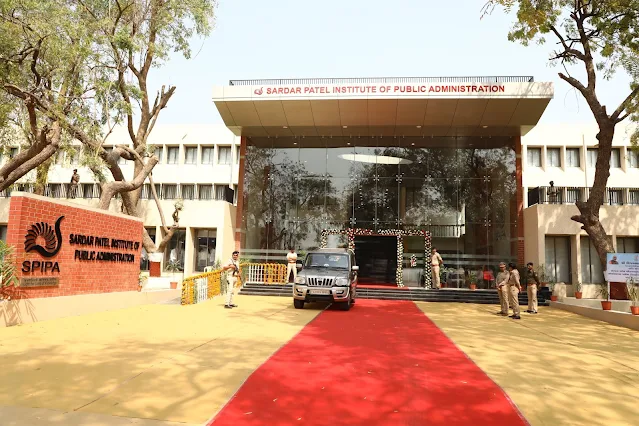By Pankti Jog*
The Department of Personnel and Training, Government of India (GoI) has allocated Rs 8.7 crore to Maharashtra for conducting Right to Information (RTI) training and awareness between 2015 to 2022. Of this, Rs 5.9 crore has gone to the Maharashtra State Training Institute, YASHADA, and Rs 3.01 crore have gone to the State Information Commission, Maharashtra.
Gujarat, on the other hand, has not received even a single rupee over the last seven years for RTI programmes. Even Gujarat’s State Information Commission too has not not received any funds since 2005.
RTI is one of the effective tools to bring transparency and accountability in the administration, thus improve governance. If citizens are aware, they would participate in a more meaningful manner in governance. They would effectively monitor planning and expenses of public programmes. Indeed, it is necessary that RTI is taken to every citizen, for which the government needs to conduct awareness drives and training programmes, both for officers as well as for citizens.
The Gujarat government is quite at ease in announcing about its commitment to good governance and transparency from time to time. However, if one looks at statistics, they reveal a few stark realities.
It is not only unfortunate that the GoI has not allocated any grant to the Gujarat Government since 2015 for RTI-related training and awareness activities. The data received under the RTI Act 2005 in an application filed by me as representative of the Mahiti Adhikar Gujarat Pahel show that before 2015, Gujarat had received grant of Rs 50.55 lakh for RTI training and awareness programmes.
In fact, Gujarat is one of the four states which has not received any grant for RTI training and awareness. Other states are Odisha, Karnataka and Aruanchal Pradesh. Maharashtra, Telangana, Punjab, Haryana and Tamil Nadu received maximum grant.
In Gujarat, the implementation of RTI is becoming weaker day by day. The Sardar Patel Institute for Public Administration (SPIPA), a Gujarat government institute, has closed down the RTI training programme for citizens, which it use to conduct earlier.
In fact, in Gujarat, the public information officers (PIOs), who are supposed to part with information under the RTI Act, interpret the law as per their convenience. They frequently cite Sections 8 and 10 of the Act, denying crucial information on contracts and payments to outsourcing agencies, citing “third party” interests.
This is enabling an environment of corrupt practices. Citizens are being pushed to the wall. There is great demand from RTI activists that there should be awareness programmes on proactive disclosures, and training workshops for citizens on RTI should be conducted as part of concrete efforts to promote transparency.
The Department of Personnel and Training, Government of India (GoI) has allocated Rs 8.7 crore to Maharashtra for conducting Right to Information (RTI) training and awareness between 2015 to 2022. Of this, Rs 5.9 crore has gone to the Maharashtra State Training Institute, YASHADA, and Rs 3.01 crore have gone to the State Information Commission, Maharashtra.
Gujarat, on the other hand, has not received even a single rupee over the last seven years for RTI programmes. Even Gujarat’s State Information Commission too has not not received any funds since 2005.
RTI is one of the effective tools to bring transparency and accountability in the administration, thus improve governance. If citizens are aware, they would participate in a more meaningful manner in governance. They would effectively monitor planning and expenses of public programmes. Indeed, it is necessary that RTI is taken to every citizen, for which the government needs to conduct awareness drives and training programmes, both for officers as well as for citizens.
The Gujarat government is quite at ease in announcing about its commitment to good governance and transparency from time to time. However, if one looks at statistics, they reveal a few stark realities.
It is not only unfortunate that the GoI has not allocated any grant to the Gujarat Government since 2015 for RTI-related training and awareness activities. The data received under the RTI Act 2005 in an application filed by me as representative of the Mahiti Adhikar Gujarat Pahel show that before 2015, Gujarat had received grant of Rs 50.55 lakh for RTI training and awareness programmes.
In fact, Gujarat is one of the four states which has not received any grant for RTI training and awareness. Other states are Odisha, Karnataka and Aruanchal Pradesh. Maharashtra, Telangana, Punjab, Haryana and Tamil Nadu received maximum grant.
In Gujarat, the implementation of RTI is becoming weaker day by day. The Sardar Patel Institute for Public Administration (SPIPA), a Gujarat government institute, has closed down the RTI training programme for citizens, which it use to conduct earlier.
In fact, in Gujarat, the public information officers (PIOs), who are supposed to part with information under the RTI Act, interpret the law as per their convenience. They frequently cite Sections 8 and 10 of the Act, denying crucial information on contracts and payments to outsourcing agencies, citing “third party” interests.
This is enabling an environment of corrupt practices. Citizens are being pushed to the wall. There is great demand from RTI activists that there should be awareness programmes on proactive disclosures, and training workshops for citizens on RTI should be conducted as part of concrete efforts to promote transparency.
---
*Mahiti Adhikar Gujarat Pahel
*Mahiti Adhikar Gujarat Pahel



Comments